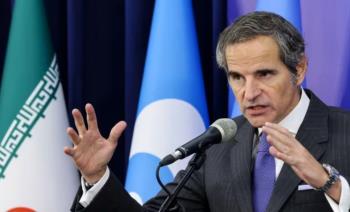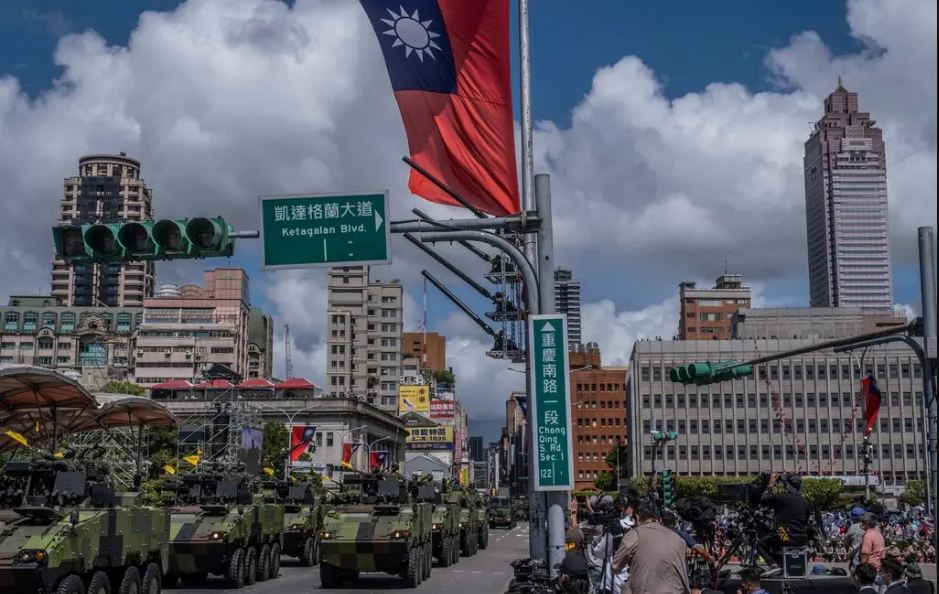Alwaght- The US reportedly is pressing Taiwan to buy American-made weapons to better repel a potential invasion by China.
US officials warned Taipei in a letter in March that the State Department would reject requests for certain weapons systems that the self-ruled island has tried to order, including the pricey MH-60R Seahawk helicopter designed for hunting submarines, saying they were not suited for warfare against China, according to documents obtained by POLITICO.
The Pentagon and State Department believed the helicopters would not "enhance Taiwan’s ability to deter [China’s] aggressive actions and defend itself," according to the letter, sent from Jessica Lewis, the assistant secretary of state for the bureau of political-military affairs, to Vice Minister Po Horng-Huei.
Instead, Lewis urged Taipei to invest in more "cost efficient" capabilities such as command and control systems, surveillance, short-range air defenses, and naval sea mines.
The US military also urged Taipei to buy an upgraded version of a mobile artillery system it had requested years ago.
The US push to reshape Taipei's defenses has gained urgency since Russia's offensive against Ukraine in late February. The war has supposedly convinced Washington and Taipei that a Chinese invasion of the self-governed island in the coming years is now a potential danger.
Taipei has made clear its interest in big-ticket American-made weapons. But Washington is trying to convince Taipei that expensive items would not survive an all-out assault from the mainland, urging it to invest in smaller, mobile systems such as drone swarms, Stinger anti-aircraft missiles, and Javelin anti-tank missiles, which are less vulnerable to China's advanced weapons.
"They are concerned about a timeline that [China] might have, the urgency, and that Taiwan has not had an acquisition strategy focused on the counter-invasion scenario," said Randy Schriver, a top Asia policy official in the Pentagon during the Trump administration. "These are platforms and weapons that maybe are not optimized for that."
Meanwhile, US-based experts believe Washington is taking too hard a line, saying it should allow Taipei to go through its processes and decide what it needs for its own defense.
Bonnie Glaser, an analyst with the German Marshall Fund of the US, said Washington had been trying to persuade Taipei to buy different weapons for a long time but there was a greater sense of urgency now.
"There's been a lot of back and forth… and there's been some convergence," Glaser said, adding that the Taiwanese sometimes argued that they still needed certain capabilities in peacetime to protect their airspace.
Chinese Taipei falls under China's sovereignty, and under the "one China" policy, almost all world countries — the US included — recognize that sovereignty. But, in violation of its own stated policy and in an attempt to irritate Beijing, Washington has maintained and recently ramped up diplomatic contact with the self-proclaimed government in Chinese Taipei. Washington is also the island's largest weapon supplier.
Last month, the United States approved the sale of up to $95 million worth of training and equipment to support Chinese Taipei's Patriot missile defense system amid heightened tensions between China and the self-ruled island. The arms sale was the third approved under US President Joe Biden, and followed a similar approval in February of equipment and services to boost Taipei's Patriot missile defense systems.
Last year, the US also sold arms to Chinese Taipei that included drones and coastal missile defenses aimed at upgrading the island's capabilities against mainland China.
Tensions between Chinese Taipei and China have been at their highest in decades. China has been flying fighter jets close to Chinese Taipei while the US has reportedly had troops deployed in the territory for the past year for training purposes.



























